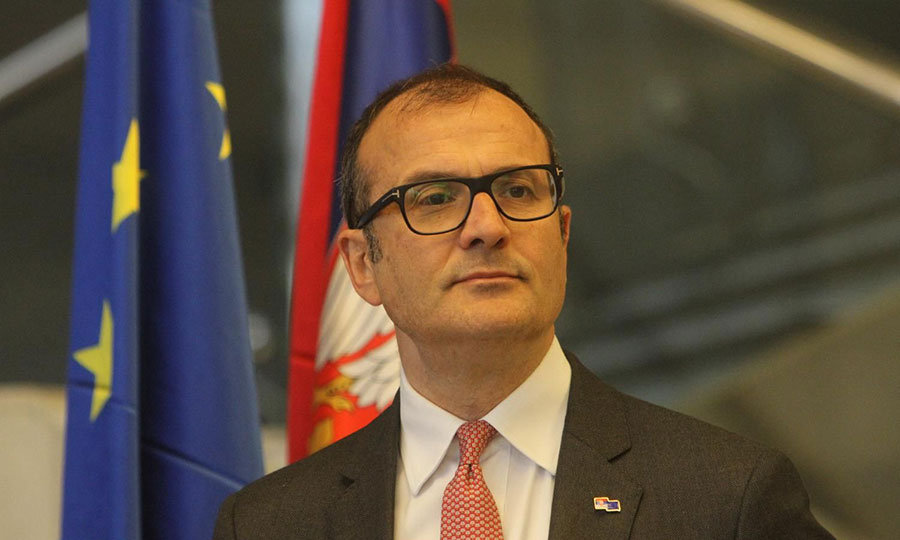Op-ed by Ambassador Sem Fabrizi, Head of the EU Delegation to Serbia, published in Blic daily:
The President of the European Commission Jean-Claude Juncker will arrive today in Serbia as part of his landmark tour of the Western Balkans.
He will be here to reaffirm the EU’s commitment to “a credible enlargement perspective for and enhanced EU engagement with the Western Balkans”, as spelled out in the Strategy adopted by the European Commission on February 6.
This represents a renewed political impetus in line with the EU’s long-held position, since the Thessaloniki European Council in 2003, that Western Balkans are part of Europe and their future is within the European Union.
The prospect of EU membership – based on a rigorous and merit-based approach – is in the EU’s very own political, security and economic interest. It is our geostrategic investment in a stable, strong and united Europe based on shared values.
For Serbia, recognition as a frontrunner in the accession process, and the indicative date of 2025, have made headlines. It is catchy indeed, but the Strategy also specifies that this perspective is ambitious and achieving this objective will depend fully on the objective merits and results of each Country.
As President Juncker has recalled, it is much more about the road ahead than about a date. A credible perspective of accession requires credible efforts, reforms and regional cooperation.
There are three issues of particular importance. Firstly, real implementation of rule of law, fundamental rights and good governance, which represent the fundamental values of the EU.
Secondly, further reforms to strengthen the economy, forging a competitive market economy ready for integration into the world’s largest single market, ensuring prosperity for generations to come.
Thirdly, regional cooperation, good neighbourly relations, resolution of bilateral disputes, and a comprehensive normalisation of relations with Pristina, through the EU-facilitated dialogue, to ensure peace and enduring stability and security in the region.
The Strategy also sets out that a credible enlargement perspective requires “enhanced support from the European Union”. Europe needs to be firm and fair, but also needs to upgrade its policies to support the transformation process in the region. It is our task to do our part, in Europe’s own interest.
We will launch six flagship initiatives to support Serbia and the region, translated into 57 concrete actions, to meet this commitment.
The aim of these will be to: strengthen support for Rule of Law; reinforce our mutual engagement on security and on migration; invest in the development of socio-economic and human capital; connect transport and energy infrastructures within the Western Balkans and with the EU; launch a Digital agenda for the Western Balkans to embrace and benefit from technological change; and support reconciliation and good neighbourly relations.
The Serbian response to the Western Balkan Strategy has been very positive. President Vucic said correctly that the Strategy and the 2025 date should not be seen as a guarantee, but as an encouragement, as an opportunity that Serbia can seize to join the EU: the most successful peace project, and an area of economic prosperity. Prime Minister Brnabic recalled that Serbia is not looking for shortcuts on its European path and that EU integration is in Serbia’s national interest.
The widest spectrum of political forces, civil society, media and business has voiced their support for the window of opportunity that this Strategy presents.
President Juncker’s tour will be a key part of a series of events over the coming months: the release of the Progress reports in April that will analyse the state of Serbia’s progress in the accession process, the Western Balkans Summit in Sofia during the Bulgarian Presidency in May and the political conclusions at the June 2018 European Council in Brussels.
With his historic visit to Serbia President Juncker will bring the message of Europe’s commitment: a message of friendship, encouragement and trust.




